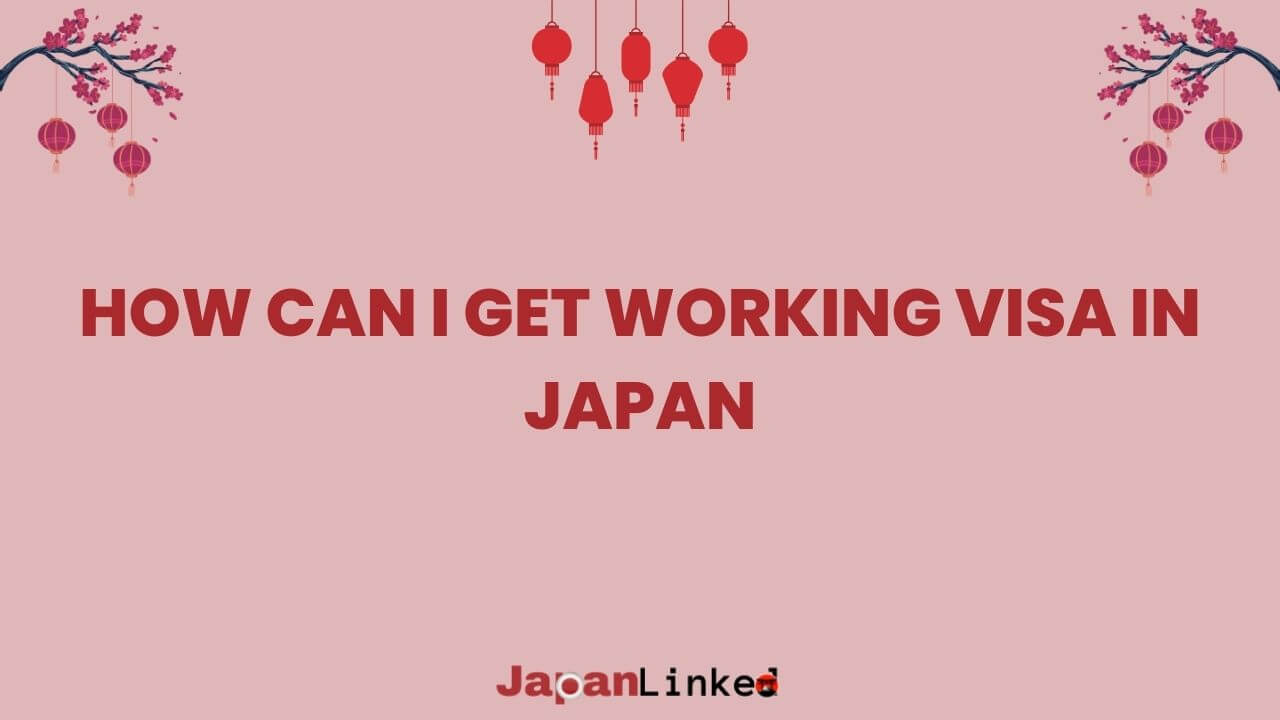Japan’s working visa system is structured to carefully manage foreign labor while addressing the country’s growing need for international talent.
As an island nation with a shrinking workforce, Japan has developed a comprehensive framework that balances immigration control with economic needs.
Understanding the Japanese Work Visa System
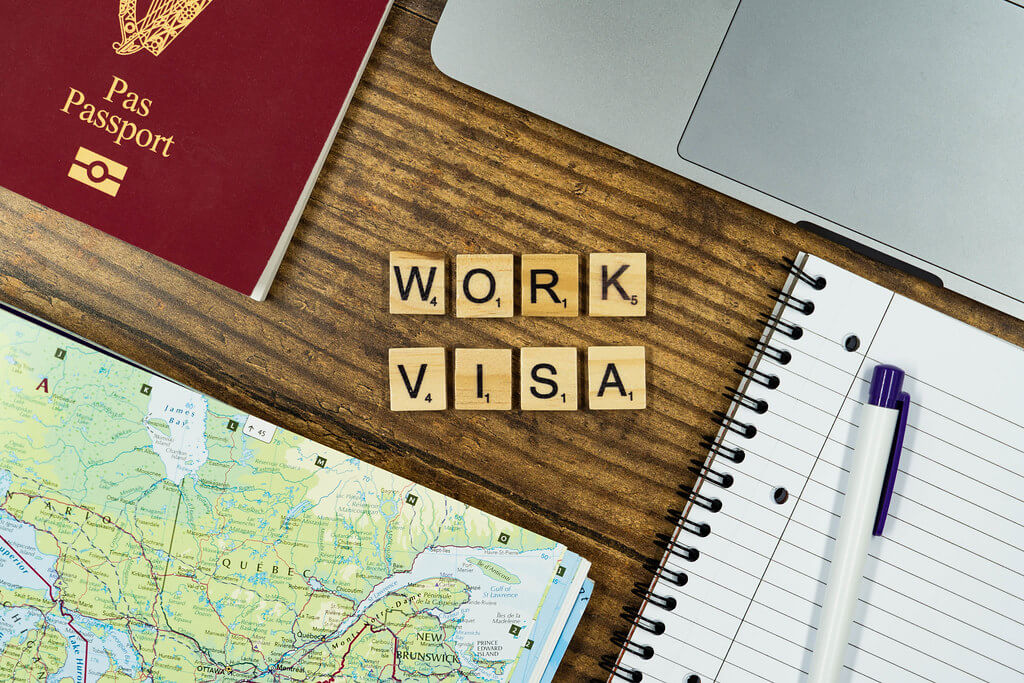
Overview of Japan’s Working Visa Framework
The Japanese work visa system operates on a status of residence basis, where each visa category corresponds to specific professional activities you’re permitted to engage in.
Unlike some countries that offer general work permits, Japan requires your visa to match your exact professional role. This system is administered primarily through the Immigration Services Agency of Japan (出入国在留管理庁), which falls under the Ministry of Justice.
Working visas in Japan typically range from 1 to 5 years in duration, with the possibility of extensions if you continue to meet the requirements.
Most importantly, you cannot simply arrive in Japan and then look for work—securing a job offer first is a fundamental requirement of the process.
Importance of Legal Work Status
Working in Japan without proper authorization carries serious consequences, including:
- Deportation and potential re-entry bans
- Fines of up to 3 million yen
- Possible imprisonment for up to 3 years
- Damage to future immigration prospects
Beyond legal penalties, maintaining proper visa status ensures access to Japan’s healthcare system, banking services, housing options, and other essential services that require proof of legal residency.
Key Authorities Involved in the Process
Several government entities play crucial roles in the visa application process:
- Immigration Services Agency – Reviews and processes Certificate of Eligibility applications
- Ministry of Foreign Affairs – Oversees Japanese embassies and consulates that issue visas
- Japanese Embassies/Consulates – Process visa applications in your home country
- Regional Immigration Bureaus – Handle residence registration and visa extensions after arrival
Your prospective employer also serves as a key participant, as they must sponsor your application and provide necessary documentation.
Basic Eligibility Requirements
While specific requirements vary by visa category, most working visas in Japan require:
- A valid job offer from a Japanese company or organization
- Relevant qualifications (typically a bachelor’s degree or higher)
- Professional experience related to the position (often 3+ years)
- A clearly defined role that cannot be easily filled by a Japanese national
- Sufficient salary to support yourself (generally at least 250,000 yen monthly)
Note: Japan evaluates applications based on how your skills benefit the Japanese economy and society. Demonstrating specialized knowledge or abilities significantly improves your chances of approval.
General Timeline Expectations
The working visa process typically follows this timeline:
| Stage | Timeframe | Responsible Party |
|---|---|---|
| Job hunting/offer | Varies (1-6+ months) | Applicant |
| Certificate of Eligibility application | 1-3 months | Employer |
| Visa application | 5-10 business days | Applicant |
| Travel to Japan | Within 3 months of visa issuance | Applicant |
| Residence registration | Within 14 days of arrival | Applicant |
From job offer to arrival in Japan, the entire process typically takes 3-5 months when everything proceeds smoothly. Planning ahead is essential, as delays can occur at any stage, particularly during busy periods or if documentation is incomplete.
Understanding this framework provides the foundation for navigating the specific steps required to successfully obtain your working visa for Japan.
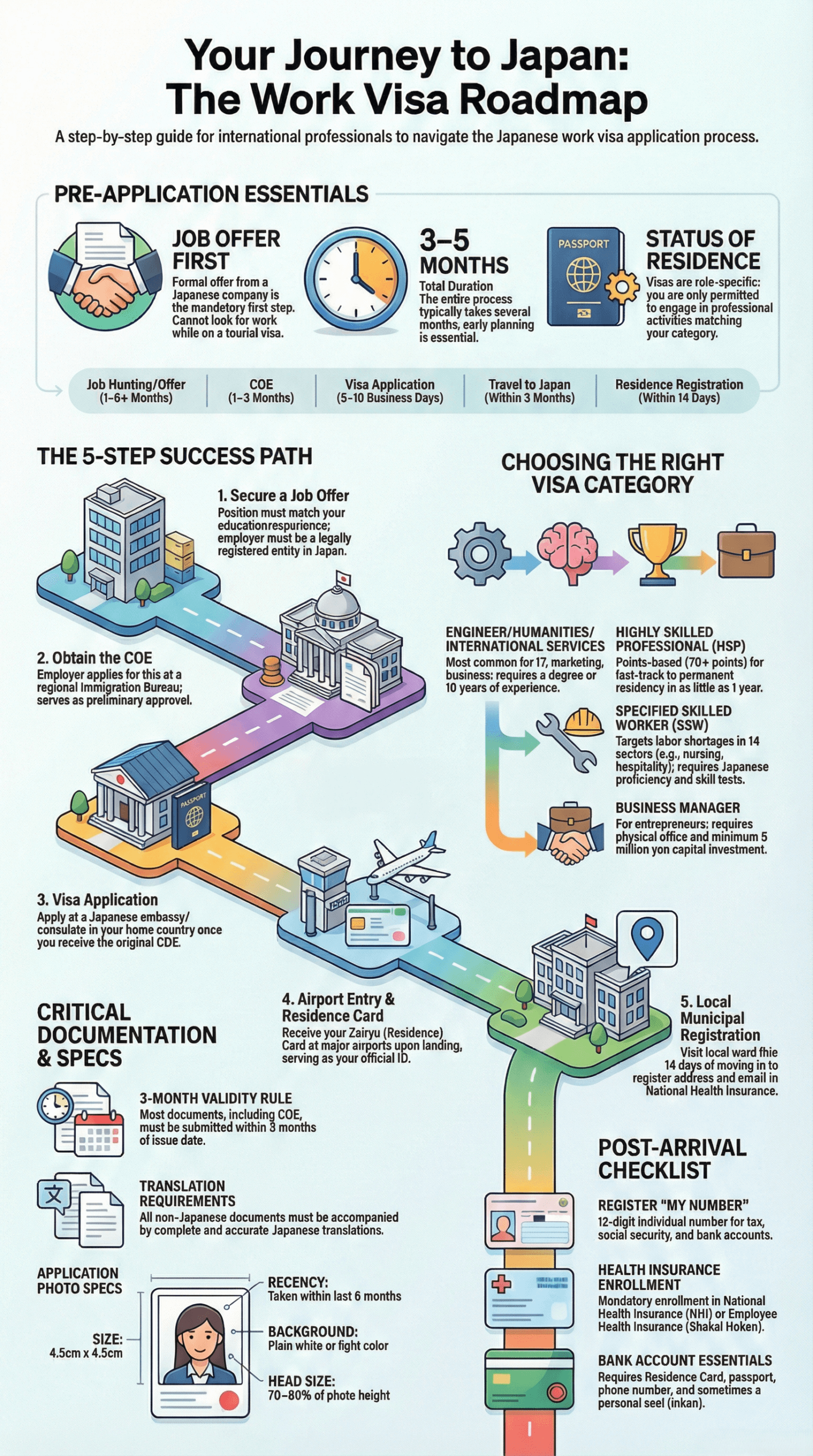
Step-by-Step Process to Obtain a Working Visa in Japan
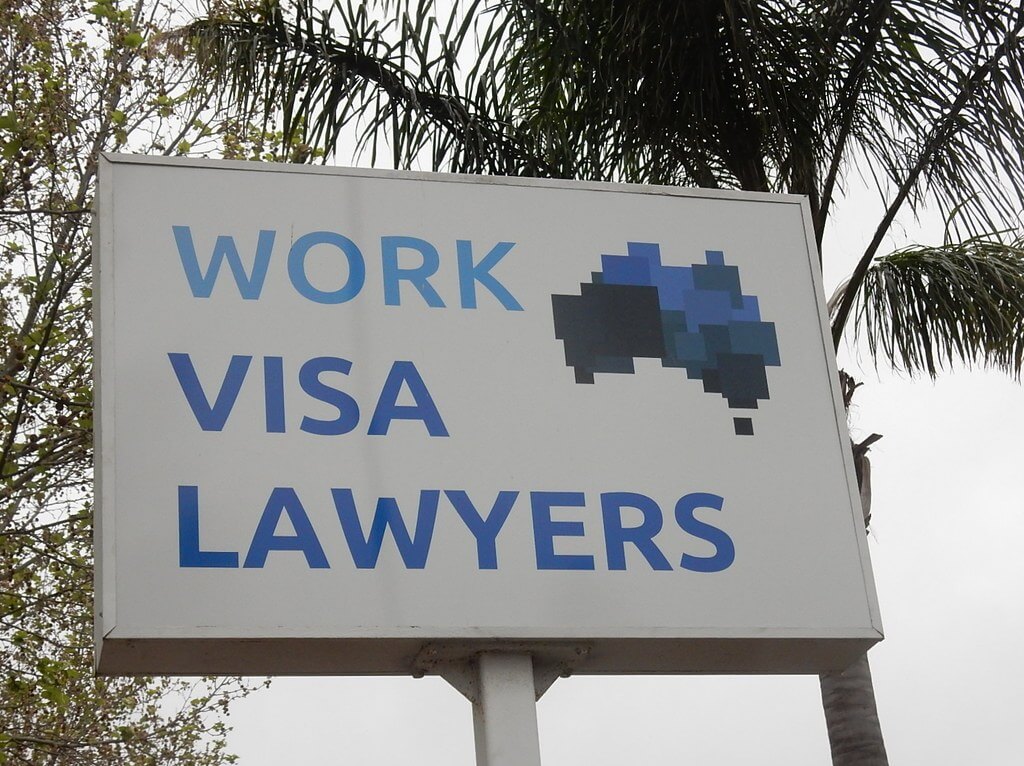
Securing a working visa in Japan follows a structured process that requires careful planning and coordination between you, your prospective employer, and Japanese immigration authorities. Let’s break down this journey into manageable steps.
1. Secure a Job Offer from a Japanese Employer
The foundation of your working visa application is a formal job offer from a Japanese company willing to sponsor you. This is non-negotiable for most working visa categories.
Key requirements for the job offer:
- The position must match your educational background or professional experience
- The employer must be a legally registered entity in Japan
- The role should provide compensation comparable to what a Japanese national would receive
- Your prospective employer must be financially stable and capable of sponsoring foreign employees
Important: The job must align with the visa category you’re applying for. For example, if you’re applying for an “Engineer/Specialist in Humanities” visa, your job duties must fall within that category’s scope.
Many employers will ask for your resume, educational certificates, and possibly a brief interview before extending a formal offer. Once you receive the offer, the employer will typically initiate the next crucial step in the process.
2. Certificate of Eligibility (COE) Application
The Certificate of Eligibility (COE) is a critical document that serves as preliminary approval for your visa. Your Japanese employer applies for this on your behalf at the regional Immigration Bureau in Japan.
For the COE application, your employer will need:
- Completed application form
- Your detailed resume or CV
- Copy of your diploma or highest educational certificate
- Letter explaining your job responsibilities
- Company registration documents
- Company’s financial statements
- Tax payment certificates
- Documents proving the company’s business activities
This process typically takes 1-3 months for approval. During this time, you may be asked to provide additional documentation if requested by immigration authorities.
3. Employer Sponsorship Requirements
Japanese companies must meet specific criteria to sponsor foreign workers:
| Requirement | Details |
|---|---|
| Legal status | Must be a registered business entity in Japan |
| Financial stability | Must demonstrate ability to pay appropriate salary |
| Business justification | Must prove need for foreign talent |
| Compliance history | Good standing with tax and immigration authorities |
| Office space | Physical business location in Japan |
Employers must also demonstrate why they need to hire a foreigner instead of a Japanese national, especially for positions that don’t require specialized skills or knowledge.
4. Visa Application at Japanese Consulate
Once your COE is approved, it will be sent to you (usually by your employer). With this document in hand, you can now apply for your actual visa at the Japanese embassy or consulate in your country.
Required documents for visa application:
- Valid passport
- Visa application form (available at the consulate or online)
- Recent passport-sized photograph
- Original COE
- Any additional documents requested by your specific consulate
The visa processing time is relatively quick once you have your COE—typically 5-10 business days. The visa fee varies by country but is generally between ¥3,000-¥6,000 ($20-$40 USD).
5. Entry Procedures Upon Arrival in Japan
After receiving your visa, you’re ready to enter Japan. Upon arrival, you’ll go through several important procedures:
- Immigration inspection at the airport where officials will check your visa and passport
- Residence card issuance for stays longer than three months (issued at major airports like Narita, Haneda, Kansai, and Chubu)
- Customs declaration for any items you’re bringing into the country
Your residence card (在留カード, zairyu card) serves as your official ID in Japan and must be carried at all times. If you arrive at a smaller airport without card-issuing capabilities, your residence card will be mailed to your Japanese address after you complete your residence registration.
Within 14 days of settling in your new home, you must visit your local municipal office to:
- Register your address
- Enroll in the National Health Insurance system
- Complete pension registration if required
Your working visa will typically be valid for 1-5 years depending on your job contract and visa category. Remember that your residence status is tied to your employment—if you change jobs, you must notify immigration authorities and possibly apply for a change in your status of residence.
Types of Working Visas in Japan: Finding Your Match
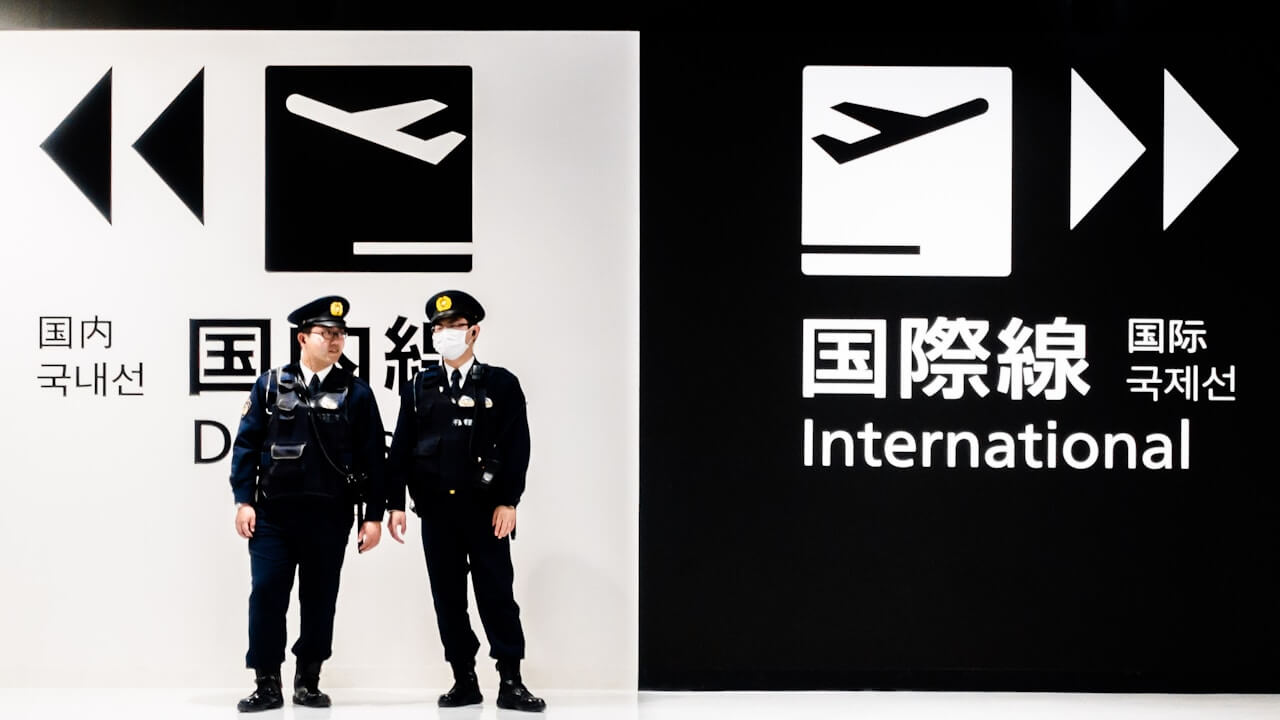
Japan offers a variety of working visa categories, each designed for specific professional backgrounds and purposes. Understanding these categories is crucial for selecting the right visa pathway for your situation.
Engineer/Specialist in Humanities/International Services Visa
This is the most common working visa for foreign professionals in Japan, covering a wide range of occupations.
Eligibility Requirements:
- Bachelor’s degree in a field related to your job OR
- 10+ years of documented professional experience in your field
- Employment contract with a Japanese company
- Salary equivalent to what a Japanese national would earn in the same position (generally ¥250,000+ monthly)
Duration: 1, 3, or 5 years initially, renewable
Best For: IT professionals, engineers, marketing specialists, translators, designers, and business professionals
Highly Skilled Professional Visa
This visa offers significant advantages for professionals with advanced skills and experience.
Eligibility Requirements:
- Point-based system evaluating:
- Academic background (30-70 points)
- Professional career (15-40 points)
- Annual income (10-50 points)
- Age (10-40 points)
- Special achievements (10-25 points)
- Must score 70+ points total
Key Benefits:
- Fast-track to permanent residency (1-3 years vs. standard 10 years)
- Permission for spouse to work full-time
- Ability to bring parents under certain conditions
- Permission to engage in multiple business activities
Duration: 5 years initially
Best For: High-earning professionals, researchers, and business managers
Specified Skilled Worker Visa
Introduced in 2019 to address labor shortages in specific industries.
Categories:
- SSW Type 1:
- Requires basic Japanese proficiency and industry-specific skills
- Limited to 14 designated sectors including food service, hospitality, construction, and nursing care
- Maximum 5-year total duration with no family sponsorship
- SSW Type 2:
- Requires higher skill level and proficiency
- Currently only available for construction and shipbuilding industries
- Can be renewed indefinitely and allows family sponsorship
- Pathway to permanent residency
Duration: 1 year initially, renewable
Best For: Workers in industries with labor shortages
Business Manager Visa
Designed for entrepreneurs and business managers establishing or running businesses in Japan.
Eligibility Requirements:
- Business plan and office space in Japan
- Minimum capital investment of ¥5 million
- Hiring at least 2 full-time Japanese employees or permanent residents
- Business manager role with documented experience
Duration: 1, 3, or 5 years initially, renewable
Best For: Entrepreneurs, company directors, and business owners
Instructor/Professor Visa
For teaching positions at educational institutions in Japan.
Eligibility Requirements:
- Bachelor’s degree minimum (higher qualifications often preferred)
- Employment contract with a Japanese educational institution
- For university positions: relevant research background or teaching experience
Duration: 1, 3, or 5 years initially, renewable
Best For: Language teachers, university professors, and school instructors
Intra-Company Transferee Visa
For employees being transferred to a Japanese branch or subsidiary.
Eligibility Requirements:
- Minimum 1 year employment with the overseas company
- Transferring to Japanese office of the same company group
- Performing specialized work (managerial, engineering, etc.)
Duration: 1, 3, or 5 years initially, renewable
Best For: Employees of multinational corporations
Working Holiday Visa
Available for young citizens of countries with bilateral agreements with Japan.
Eligibility Requirements:
- Age 18-30 (18-25 for some countries)
- Citizen of one of the 26 partner countries including Australia, Canada, UK, and New Zealand
- Primary purpose is holiday, with work being secondary
- Sufficient funds for initial stay (approximately ¥500,000)
Duration: 6 months to 1 year (non-renewable)
Best For: Young adults wanting to experience Japanese culture while supporting themselves through part-time work
Specialized Fields Visas
Several specialized categories exist for specific professions:
| Visa Type | Intended For | Key Requirements |
|---|---|---|
| Medical Services | Doctors, nurses, dentists | Japanese medical license, employment contract |
| Legal/Accounting | Lawyers, accountants | Japanese professional qualification, employment contract |
| Artist | Professional artists, musicians | Demonstrated career, sponsorship/contracts |
| Religious Activities | Religious workers | Invitation from Japanese religious organization |
| Journalist | Foreign media representatives | Assignment from foreign news organization |
Selecting the Right Visa Type
When determining which visa category to pursue, consider:
- Your qualifications: Educational background and years of professional experience
- Employment situation: Job offer details, employer’s willingness to sponsor
- Long-term goals: Plans for permanent residency or citizenship
- Family considerations: Whether you need to bring dependents
Pro Tip: The visa category should align with your actual work duties. Immigration officials scrutinize applications to ensure the visa type matches the job description and your qualifications.
Most working visas in Japan are tied to specific employers or activities. If you change jobs, you’ll need to notify immigration and potentially apply for a change in visa status if moving to a different industry or role type.
Required Documentation and Application Materials
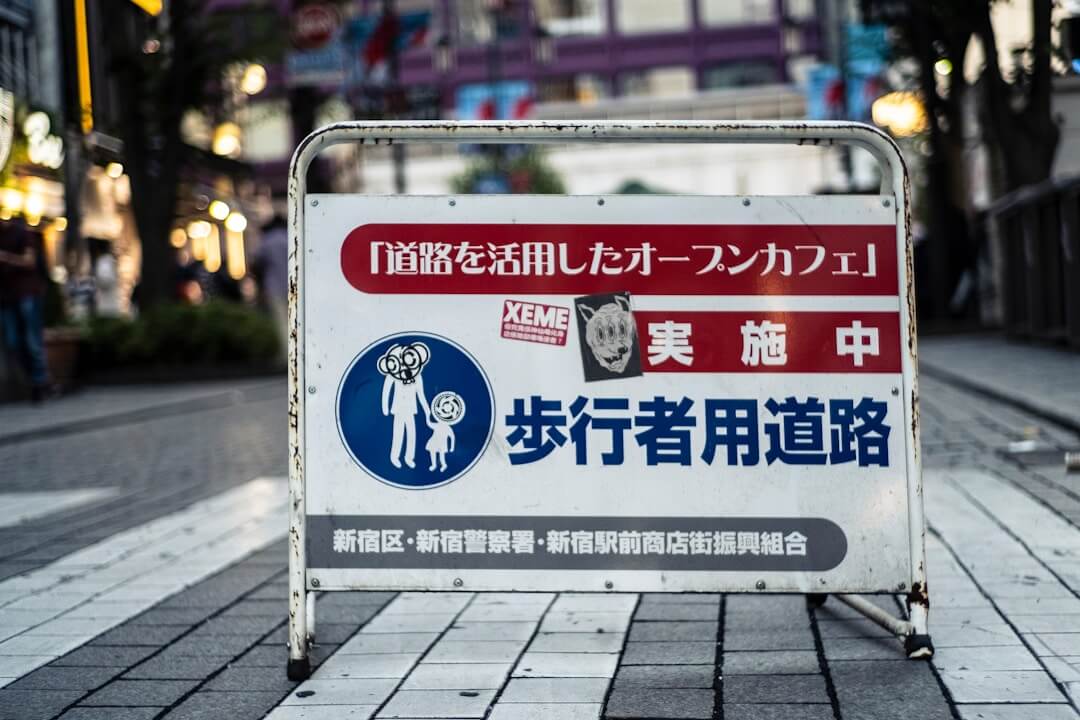
Navigating Japan’s work visa process requires meticulous attention to documentation. The Japanese immigration system values thoroughness and precision, making proper preparation of your application materials essential for success.
Comprehensive Document Checklist
The following documents are typically required for a working visa application in Japan:
- Valid passport – Must be valid for the duration of your intended stay
- Visa application form – Completed, signed, and dated
- Recent photograph – Following specific requirements (detailed below)
- Original Certificate of Eligibility (COE) – Issued by Japanese Immigration
- Supporting documents specific to your visa category:
- Academic credentials (diplomas, degrees)
- Professional certifications
- Employment history documentation
- Proof of specialized skills
- Financial statements (for certain visa types)
Important: All documents must be submitted within 3 months of their issue date to be considered valid by Japanese authorities.
Application Form Guidance
The visa application form requires careful completion:
- Use black ink or type all information
- Complete all fields – mark “N/A” for non-applicable sections
- Ensure information matches exactly with your passport and COE
- Double-check all dates using the Japanese format (Year/Month/Day)
- Sign and date where indicated with your full legal signature
Common errors that lead to rejection include inconsistent information between documents, missing fields, and incorrect date formats.
Photo Specifications
Japan has strict requirements for visa application photos:
| Specification | Requirement |
|---|---|
| Size | 4.5cm × 4.5cm |
| Background | Plain white or light color |
| Timeframe | Taken within the last 6 months |
| Pose | Facing forward, neutral expression |
| Head size | 70-80% of the photo’s height |
| Eyes | Clearly visible (no tinted glasses) |
| Format | Printed on photo paper (not digital) |
Photos that don’t meet these specifications will result in application rejection, delaying your visa process.
Translation Requirements
All non-Japanese documents must be accompanied by Japanese translations:
- Academic credentials
- Employment certificates
- Professional licenses
- Medical records (if applicable)
- Birth certificates (for dependent visas)
While not always required to be certified, translations should be:
- Complete and accurate
- Include the translator’s name, contact information, and date
- Formatted professionally on A4 paper
- Attached to a copy of the original document
Supporting Evidence Preparation
Depending on your visa category, additional supporting evidence strengthens your application:
For Skilled Professional Visas:
- Detailed resume/CV highlighting relevant experience
- Letters of recommendation from previous employers
- Portfolio of work (for creative professionals)
- Evidence of publications or patents (for researchers)
For Business Manager Visas:
- Business plan
- Company registration documents
- Evidence of capital investment
- Office lease agreements
For Specialized Skills Visas:
- Proof of passing relevant Japanese proficiency tests
- Industry-specific qualification certificates
- Evidence of specialized training
Organization and Submission Tips
Proper organization of your application materials significantly improves processing efficiency:
- Arrange documents in the order listed on the application checklist
- Use paper clips instead of staples
- Include a cover letter listing all enclosed documents
- Make copies of everything for your personal records
- Consider using transparent file folders to separate categories of documents
Pro tip: Create a document tracking spreadsheet to monitor expiration dates and submission status of each required item.
Preparing your documentation thoroughly before submission can dramatically reduce the likelihood of delays or rejection in your Japan work visa application process.
Special Work Visa Programs and Pathways
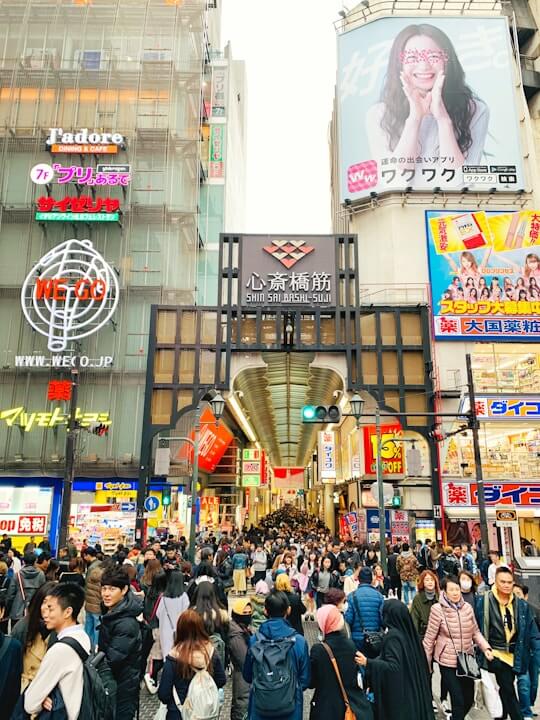
Japan offers several specialized visa programs designed to attract specific types of foreign workers. These pathways often have unique requirements and benefits compared to standard working visas.
Highly Skilled Professional Visa Point System
The Highly Skilled Professional (HSP) visa represents Japan’s effort to attract top global talent through a points-based system. This visa offers significant advantages over standard work visas:
| Category | Points Awarded For | Maximum Points |
|---|---|---|
| Academic Background | Doctoral degree (30 pts), Master’s degree (20 pts), Bachelor’s degree (10 pts) | 30 |
| Professional Career | 10+ years experience (20 pts), 7-9 years (15 pts), 5-6 years (10 pts), 3-4 years (5 pts) | 20 |
| Annual Income | ¥10M+ (40 pts), ¥9M (35 pts), ¥8M (30 pts), ¥7M (25 pts), ¥6M (20 pts), ¥5M (15 pts), ¥4M (10 pts), ¥3M (5 pts) | 40 |
| Age | 29 or younger (15 pts), 30-34 (10 pts), 35-39 (5 pts) | 15 |
| Special Achievements | Patents, research publications, special certifications | 25 |
Applicants scoring 70 points or higher qualify for the HSP visa, which includes benefits such as:
- Expedited permanent residency (as little as 1 year for HSP Level 1)
- Permission to engage in multiple activities
- Faster processing times
- Ability to bring parents under certain conditions
- Domestic staff hiring privileges
Working Holiday Visa Options
The Working Holiday visa enables young people (generally 18-30 years old) to work while experiencing Japanese culture. This program operates through bilateral agreements between Japan and specific countries:
“The Working Holiday visa allowed me to teach English part-time while exploring Japan. It was the perfect stepping stone to my current career in Tokyo.” – Canadian Working Holiday participant
Currently, Japan has Working Holiday agreements with 26 countries including Australia, Canada, New Zealand, UK, Germany, France, Taiwan, Hong Kong, and South Korea. Key features include:
- Duration: Typically 12 months (non-renewable)
- Work restrictions: No employment in entertainment/gambling industries
- Quota system: Limited visas per country annually
- One-time opportunity: Can only be obtained once in a lifetime
This visa serves as an excellent entry point for those seeking to eventually transition to a full working visa in Japan.
Specified Skilled Worker Program
Launched in 2019 to address labor shortages, the Specified Skilled Worker (SSW) visa program targets workers in specific industries:
- SSW Type 1:
- For workers with basic skills and Japanese language ability (typically JLPT N4 level)
- Valid for up to 5 years total (non-renewable beyond this period)
- No family members allowed
- Available in 14 sectors including agriculture, construction, nursing care, food service, and hospitality
- SSW Type 2:
- For workers with advanced skills
- Renewable indefinitely
- Family members permitted
- Currently only available in construction and shipbuilding industries
Applicants must pass both industry-specific skills tests and Japanese language examinations, though requirements vary by sector.
Intra-Company Transfer Route
The Intra-Company Transferee visa facilitates the temporary relocation of employees from overseas offices to Japanese branches of the same company. Key requirements include:
- Minimum one year of employment at the foreign office before transfer
- Position in Japan must be in management, engineering, or specialized fields
- Salary must be equivalent to what a Japanese national would receive in the same position
- Valid for 1-5 years and renewable
This pathway offers a streamlined process for multinational corporations to deploy talent to their Japanese operations without navigating the standard work visa application process.
Academic and Research Positions
Japan actively recruits international talent for its universities and research institutions through dedicated visa categories:
- Professor visa: For instructors at universities and equivalent educational institutions
- Researcher visa: For conducting research at public/private organizations
These visas offer several advantages:
- Longer duration: Initial periods of 3-5 years
- Broader activities: Permission to teach and conduct research simultaneously
- Family inclusion: Dependents can join the visa holder
- Path to permanence: Academic positions often lead to long-term opportunities
Japan’s MEXT Scholarship program also serves as a pathway, allowing international students to transition to working visas after graduation if they secure relevant employment.
Each of these specialized pathways offers unique advantages for different types of professionals seeking to work in Japan. Understanding which route best matches your qualifications and career objectives is essential for a successful application.
Common Challenges and How to Overcome Them
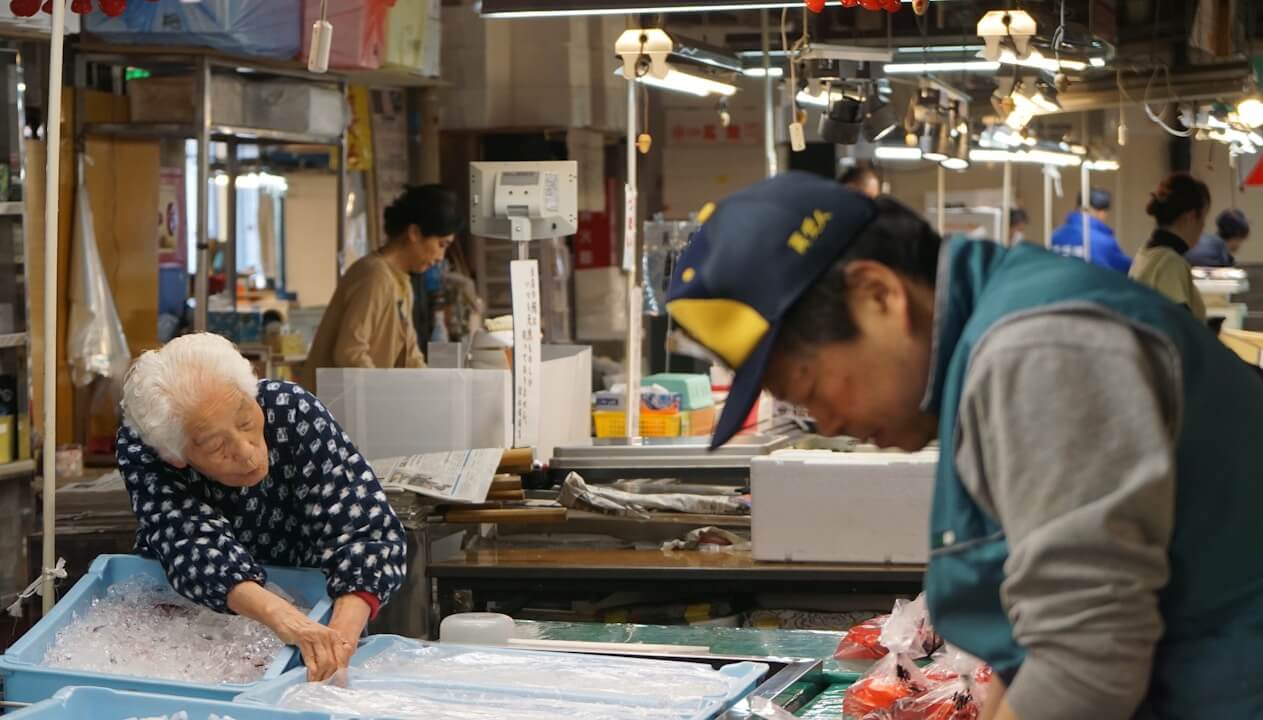
Securing a working visa in Japan can be a smooth process for some, but many applicants encounter obstacles along the way. Being prepared for these challenges can significantly improve your chances of success.
Language Barriers
One of the most immediate challenges is the language barrier, which affects both the visa application process and your work prospects.
Challenge: Many official documents and application forms are in Japanese, and immigration officers may have limited English proficiency.
Solution:
- Enlist the help of a Japanese-speaking friend or colleague
- Use professional translation services for important documents
- Consider hiring an immigration consultant who specializes in helping foreigners
- Begin learning basic Japanese before applying, focusing on terms related to immigration and employment
Pro Tip: The Immigration Services Agency of Japan offers some English-language support, but having Japanese assistance during your application process can prevent misunderstandings and delays.
Qualification Recognition Issues
Challenge: Japan has specific requirements for recognizing foreign qualifications and degrees, which can be problematic for certain professions.
Solution:
- Obtain detailed credential evaluation reports from recognized agencies
- Secure letters from your educational institutions explaining your qualifications
- For regulated professions (medicine, law, etc.), research Japan’s specific licensing requirements early
- Consider obtaining additional certifications that are recognized in Japan
Timeline Delays
Challenge: The COE application process typically takes 1-3 months, but delays are common, especially during busy periods or if documentation is incomplete.
Solution:
- Apply at least 4-6 months before your intended start date
- Submit all documents at once with careful organization
- Follow up politely with your employer about the application status
- Have contingency plans for your departure date
Common causes of delays:
- Incomplete documentation
- Seasonal application surges (particularly April and October)
- Changes in immigration policies
- COVID-19 related restrictions (which continue to evolve)
Changing Employers
Challenge: Your working visa is typically tied to a specific employer and job description, making job changes complicated.
Solution:
- Understand that changing jobs within the same visa category is generally easier
- Notify immigration within 14 days of leaving your current employer
- Secure a new position within 3 months to maintain visa status
- File for a “Change of Status of Residence” if moving to a different visa category
- Ensure your new employer is willing to support your visa transfer
Visa Extensions and Renewals
Challenge: Working visas have expiration dates (typically 1, 3, or 5 years), requiring extensions to continue working in Japan.
Solution:
- Begin the renewal process at least 3 months before expiration
- Maintain thorough documentation of your employment history
- Ensure your tax payments are up to date
- Demonstrate integration into Japanese society (language study, community involvement)
- Address any visa violations immediately with professional help
Regional Considerations
Challenge: Visa processing experiences can vary significantly depending on your home country and which Japanese consulate handles your application.
Solution:
- Research the specific requirements of the Japanese consulate in your jurisdiction
- Connect with others from your country who have successfully obtained Japanese work visas
- Allow for additional processing time if applying from countries with complex diplomatic relations with Japan
- Consider working with immigration agencies that specialize in your specific region
Documentation Challenges
| Common Documentation Issues | How to Address Them |
|---|---|
| Missing apostilles or authentications | Contact your home country’s government offices for proper document certification |
| Expired documents | Check validity requirements for all documents (typically 3-6 months) |
| Inconsistent name formats | Ensure your name appears identically across all documents |
| Insufficient proof of qualifications | Include detailed job descriptions, portfolios, and reference letters |
| Inadequate financial documentation | Provide comprehensive proof of financial stability if self-sponsoring |
By anticipating these challenges and preparing accordingly, you can navigate Japan’s work visa process more efficiently and increase your chances of a successful application. Remember that patience and attention to detail are essential qualities throughout this process.
Life After Approval: Next Steps in Japan

Congratulations! Your working visa has been approved, and you’ve arrived in Japan. But the paperwork journey isn’t quite over yet.
The first few weeks in Japan involve several essential administrative procedures that will set you up for a smooth transition into your new life and work.
Residence Card Registration
Upon arrival at major Japanese airports (Narita, Haneda, Kansai, and Chubu), immigration officials will issue you a Residence Card (在留カード, Zairyu Card). This credit card-sized ID is perhaps the most important document you’ll have in Japan.
- Initial Airport Process: Your passport will be stamped and a residence card issued immediately if arriving at a major international airport
- Within 14 Days: If you arrive at a smaller airport, you’ll receive a stamp in your passport indicating that your residence card will be mailed to you after you register your address
- Address Registration: You must visit your local municipal office (kuyakusho or shiyakusho) within 14 days of finding permanent accommodation to register your address
Pro Tip: Take your passport and residence card with you everywhere during your first few months in Japan. Many services will require you to present them for verification.
Local Government Procedures
After receiving your residence card, several municipal procedures need to be completed:
| Procedure | Timeframe | Documents Needed |
|---|---|---|
| Address Registration | Within 14 days of moving in | Passport, Residence Card |
| National Health Insurance | Same day as address registration | Passport, Residence Card, Address Registration |
| National Pension System | Same day as address registration | Passport, Residence Card, Address Registration |
During your visit to the municipal office, you’ll also learn about local garbage collection rules, emergency procedures, and community services available to residents.
Banking Setup
Setting up a bank account is crucial for receiving your salary and managing daily expenses:
- Choose a Bank: Major options include MUFG, Mizuho, SMBC, Japan Post Bank (JP Bank), and online banks like Shinsei or Sony Bank
- Required Documents:
- Residence Card
- Passport
- Personal seal (inkan) (some banks)
- Phone number
- Employer information (sometimes required)
- Consider Services: Look for banks offering:
- English-language support
- Online banking
- International transfers
- ATM accessibility
Health Insurance Enrollment
Japan has two main health insurance systems:
- National Health Insurance (NHI) – Kokumin Kenkō Hoken:
- For freelancers, part-time workers, or those whose employers don’t provide insurance
- Typically covers 70% of medical costs
- Premium based on previous year’s income (roughly 5-10% of income)
- Employee Health Insurance – Shakai Hoken:
- For full-time employees
- Usually arranged by your employer
- Covers 70% of medical costs plus additional benefits
- Premium shared between you and your employer
Important: Health insurance enrollment is mandatory for all residents staying more than three months.
My Number (Tax Number) Acquisition
Shortly after registering your address, you’ll receive a notification about your My Number (Individual Number) card:
- This 12-digit number is used for tax, social security, and disaster response purposes
- You’ll receive a notification card by mail
- You can apply for the actual plastic My Number Card (recommended)
- The My Number Card can serve as official ID and provides access to certain online government services
Long-Term Residency Options
While settling into your new life in Japan, consider your long-term residency plans:
- Visa Renewal: Most working visas are valid for 1, 3, or 5 years and can be renewed before expiration
- Visa Change: If you change jobs or career fields, you may need to apply for a different visa category
- Permanent Residency: After residing in Japan for at least 10 years (or as little as 1 year for highly skilled professionals), you can apply for permanent residency
- Naturalization: Becoming a Japanese citizen requires at least 5 years of residency and giving up your original citizenship
Creating Social Connections
Beyond the paperwork, building a social network is vital for a fulfilling life in Japan:
- Join local community centers (kōminkan) for cultural activities
- Participate in language exchange groups
- Connect with expatriate communities through social media groups
- Attend company social events to build relationships with colleagues
Setting Up Utilities
Once you have your residence card and bank account, you can set up essential utilities:
- Mobile Phone: Major carriers include Docomo, au, SoftBank, and budget MVNOs like Rakuten Mobile
- Internet: Available through various providers, often bundled with mobile plans
- Electricity, Gas, and Water: Usually arranged through your landlord or real estate agent
By methodically working through these post-arrival steps, you’ll establish the foundation for a stable and successful life in Japan.
Remember that many cities have international support centers that offer multilingual assistance with these procedures – don’t hesitate to seek help if needed.
Frequently Asked Questions About Working Visas in Japan
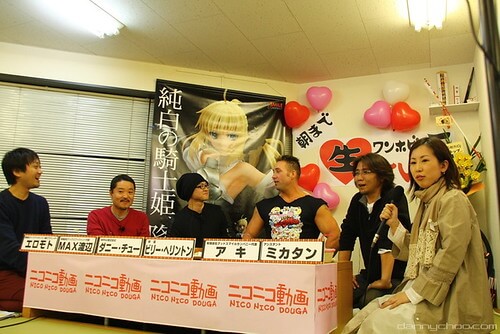
Can my family join me on a dependent visa?
Yes, your spouse and children can join you in Japan on a Dependent Visa (家族滞在 – Kazoku Taizai). This visa allows your immediate family members to live in Japan while you work.
Dependents can engage in part-time work for up to 28 hours per week after obtaining permission from immigration.
The application process requires proof of your relationship (marriage certificate, birth certificates), proof of your ability to support them financially, and your valid residence status in Japan.
Can I start working while my visa application is being processed?
No, you cannot legally work while your initial working visa application is being processed. You must wait until your visa is approved and you have entered Japan with the proper status of residence.
Working without proper authorization is illegal and can result in deportation and a ban from re-entering Japan for a specified period.
However, if you’re already in Japan on another visa status and applying for a change of status, you can continue working under your current visa until a decision is made on your application.
What is the process for renewing my working visa?
Working visa renewal applications should be submitted at your local Immigration Bureau 1-3 months before your current visa expires. The renewal process typically requires:
- A completed application form
- Your passport and residence card
- A certificate of employment or contract renewal
- Tax payment certificates
- Proof of income (tax returns or salary statements)
- A 4,000 yen revenue stamp (収入印紙 – Shūnyū Inshi)
Processing times range from 2 weeks to 3 months. Most renewals grant the same period as your previous visa, though longer periods may be awarded based on your employment history and compliance with Japanese laws.
Are there minimum salary requirements for working visas?
While there’s no officially published minimum salary requirement for all working visas, immigration officers assess whether your income is sufficient to maintain a stable life in Japan.
As a general guideline, your monthly salary should be at least 200,000-250,000 yen. Highly Skilled Professional visas have specific point-based criteria where higher salaries earn more points. Business Manager visas require proof of substantial investment and a business plan showing viability.
Do I need Japanese language proficiency to get a working visa?
For most working visa categories, there is no formal Japanese language requirement. You can obtain a working visa without speaking Japanese if you meet the educational and professional requirements for your visa category. However, some specific visa types do have language requirements:
| Visa Type | Language Requirement |
|---|---|
| Specified Skilled Worker (Type 1) | Japanese proficiency test (typically JFT-Basic or N4) |
| Interpreter/Translator | High level of Japanese proficiency |
| Instructor (at certain institutions) | May require demonstrated Japanese ability |
Even when not required, Japanese language skills significantly improve your employment prospects and daily life in Japan.
Can I change my visa status while in Japan?
Yes, it’s possible to change your visa status while in Japan without returning to your home country, though the process and likelihood of approval depend on your current visa and the visa you’re applying for. Common transitions include:
- Student → Working visa (requires job offer related to your studies)
- Working Holiday → Working visa (requires job offer meeting visa criteria)
- Dependent → Working visa (requires job offer meeting visa criteria)
- One working visa category to another (requires new position meeting new category requirements)
The change of status application is submitted to your local Immigration Bureau and typically requires similar documentation to a new visa application, including a Certificate of Eligibility sponsored by your employer. Processing times range from 2 weeks to 3 months.

